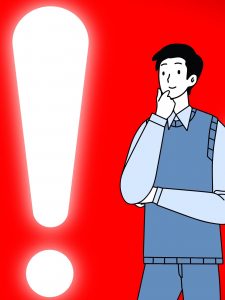3.3 The Consonants [ɾ] and [r]

Learning Objectives
At the end of this chapter, you will:
- Know how the sounds [ɾ] and [r] are formed.
- Be able to tell in which contexts these sounds occur.
- be able to discriminate between these two sounds.
- Practice their pronunciation.
In this section we present the liquid consonants [ɾ], as in “caro” and [r] as in “carro.” Both of these sounds are represented by the letter “r” and sometimes by “rr.” Since the pronunciation of the letter “r” is very different in English and Spanish, it is often a source of difficulty. Ironically, the sound [ɾ] does exist in English, although in writing it is represented differently from Spanish. Since incorrect articulation of these sounds can make pronunciation sound very foreign, this chapter is of paramount importance.
Let’s compare these two sounds. Please listen to the speaker.
1. [ɾ]: intereses, comercio, abro, drástico, toros, arlequín.
2. [r]: reembolso, arrendar, fierro, ferrocarril, riesgo, aquelarre.
I. THE LIQUID CONSONANT [ɾ]
The sound [ɾ] is called “liquid” because its production requires a narrowing of the mouth but there is no obstruction. So the sound passes through the mouth as a “liquid.” It is not an occlusive, since there is no obstruction, and it is not a fricative, since its production does not require any friction. This sound is represented by the letter “r” in the middle of a word and before or after any vowel or consonant, except after “l,” or “n.” As stated above, this sound does exist in American English but it is not represented by the letter “r,” but by “t,” “tt,” “d,” and “dd” in certain contexts like in “what a,” “atta, “Adam,” or “buddy.”
In order to produce this sound, the tongue “taps” the alveolar ridge and there is no interruption of the airflow. Sometimes this sound is called a “tap” because of the way in which it is articulated. Please watch the animation below.
Please listen to the examples below which show the English and the Spanish graphic representation of [ɾ]:
| English | Spanish |
| atta boy | ahora voy* |
| Mary gotta go | Mari Garagó |
| Muddy Flatters | Mari Flores |
| bitter cruise | Veracruz* |
| what a niece | guaranís |
| witty witty | güiri güiri** |
| add a one | Ara Juan |
| muddy waters | Mari Juárez |
* Remember that in Spanish the “v” is pronounced exactly like a “b.”
** In Mexican jargon, small talk or gossip.
Let’s practice. Please listen to the speaker and repeat.
• Para comer bien / será necesario preparar / varios manjares muy sabrosos.
• El torero toreó en un foro / en las afueras de Guadalajara / pero el toro lo hirió gravemente.
• El verde es un color hermoso / que irá bien con cualquier otro color / para la decoración de este hogar.
• Iremos a estudiar / no a hablar / pues pronto tendremos / una prueba enorme.
II. THE LIQUID CONSONANT [r]
Unfortunately, unlike the [ɾ], there is no similar sound in English. The point of articulation for [r] is the same as for [ɾ], however, instead of tapping the tongue just once, you must tap it multiple times. That is why this sound is often referred to as a “trill.” This sound is represented by the letter “r” at the beginning of a word, and by the letter “rr” in the middle. In order to facilitate its pronunciation, put your tongue in #1 as in the diagram below: the same place as when you pronounce the “tt” in “atta.” Leave it there for a second, and then push air through like in #2:

You can also watch this animation showing the production of the [r]:
Discrimination exercise. Learning to identify sounds in Spanish is an important part of improving your pronunciation. Please listen to the following recording and indicate what sound you hear: a Spanish tap, a Spanish trill, or an English sound.
Let’s contrast these two sounds. Please listen and repeat after the speaker.

ATTENTION: Both of these sounds requiere a great amount of muscle control. Furthermore, the sound [ɾ] requires that you tap your tongue on the alveolar ridge JUST ONCE, whereas the [r] requires you to let the breath be the wind which flaps the tongue, while the latter stays in place at the alveolar ridge.
| [ɾ] | [r] |
| caro | carro |
| para | parra |
| Amaro | amarro |
| Éric | Enrique |
| Ara | arra |
| quería | querría |
| Arnulfo | arruyo |
| mira | mirra |
| fiero | fierro |
Please listen and repeat after the speaker. Concentrate on the production of the sounds [ɾ] and [r].
• Raquel se rió durante un buen rato / porque Armando realmente se comportó / como un verdadero retardado.
• En Brasil hay arañas rojas / y producen un veneno peligroso / para la supervivencia de las personas.
• Enrique realizó / la tarea histórica de construir / el edificio más raro de Israel.
• Alrededor de nuestro barrio / existen perros rabiosos / que rondan por las calles / y no tienen propietario.
• El señor Uruchurtu / creía que la gravedad / era realmente una cuestión de risa.
Self Analysis Activity

Listen to your recording and answer the following questions. Answers will auto-save every 10 seconds..

